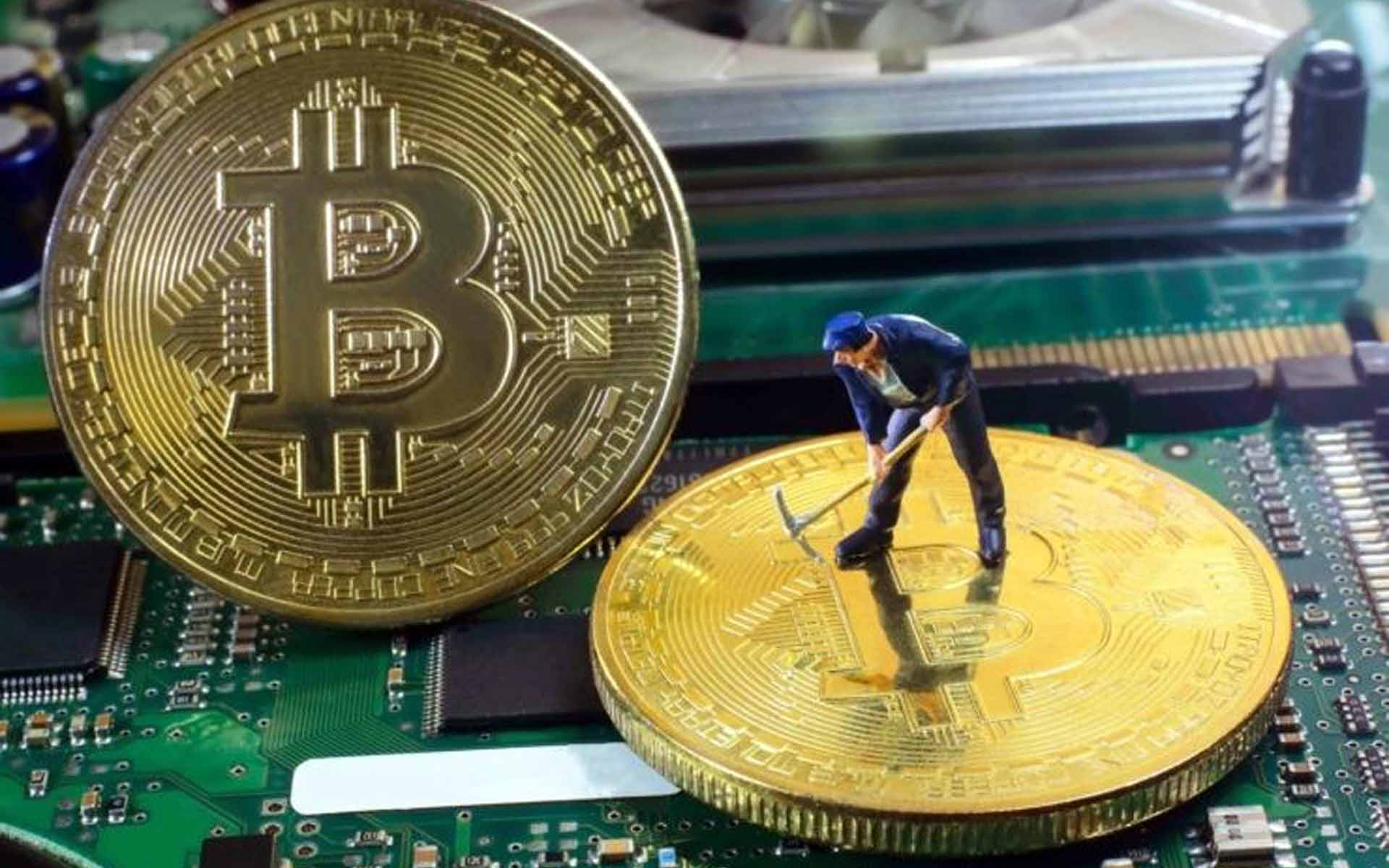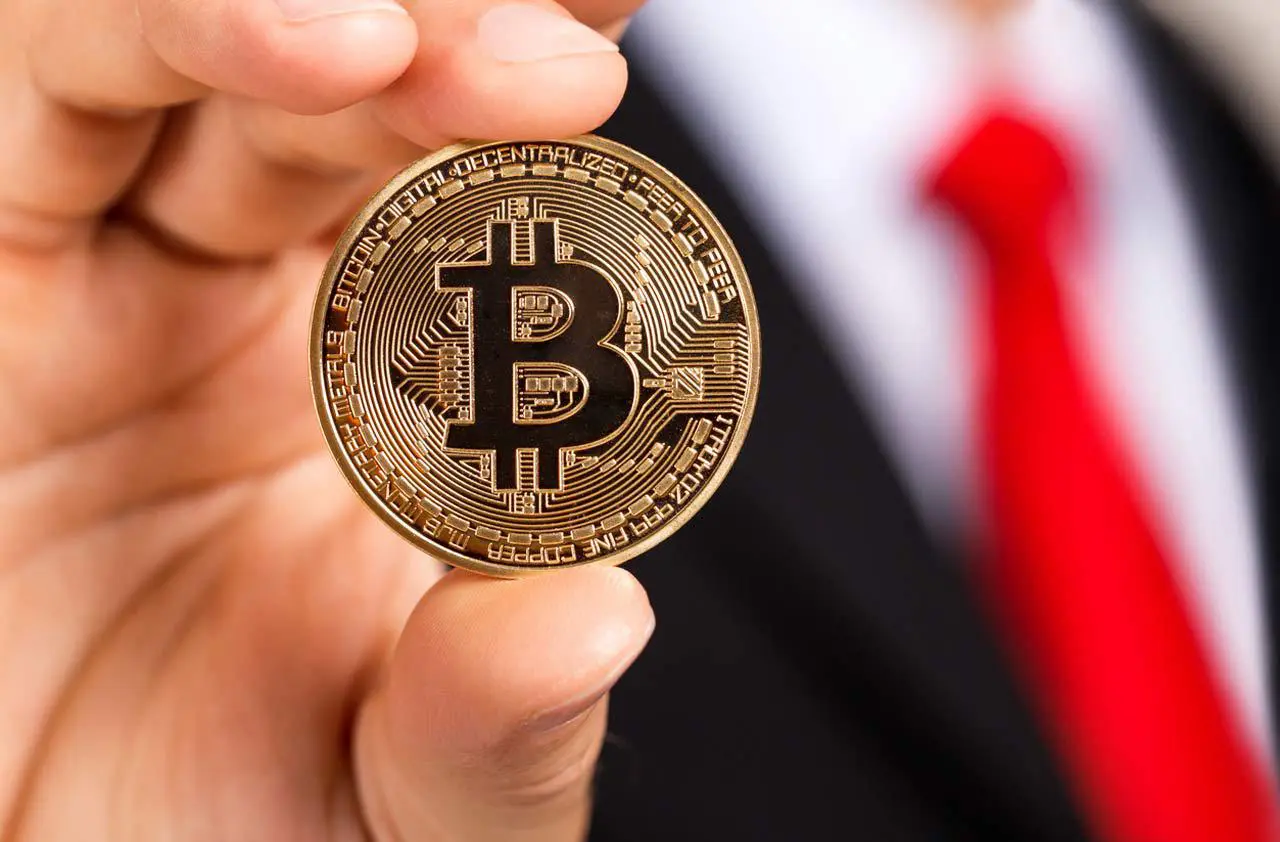Bank money is a promise, Bitcoin is not.
(15 minute read)
I recently had a short conversation with my uncle about saving in Bitcoin. The conversation wasn't very long, but we touched on the difference between trading Bitcoin and saving in it, but I got a little stumped after telling him that the money in the bank was merely a promise. His response was: why is Bitcoin NOT a promise?
I tried to think of an answer, but being technical myself, and having a very technical understanding of it all, I couldn't find a satisfactory answer that was understandable. I needed to walk away and give it some thought. This article is the result.
What is the definition of a promise?
Before we begin, let's take a moment to differentiate between two things that people think about when they hear "promise" in the context of money:
- The "promise" of money having value in the future
- The "promise" of you always having access to money to use for trade
Money has taken shape in many forms in history, from shells, to gold, and now paper money issued by government. There is no promise of any form of money having value in the future. It is possible for our central banks to make such a promise, but this is not something that they have absolute control over; money is merely an expression of what we, as individuals, wish to use for trade and savings.
Currently, most people use government issued currency for trade and as a unit of account, however as trust in our governments and central banks erode, people start to look for alternatives. There is good reason to look for alternatives in today's world, our money is being used against us; our money is inherently political - not only regarding how taxes are handled, but also how newly issued money is directed towards political causes while newly issued money causes debasement of our savings. The 2% target inflation is always framed as a noble goal, but in fact it is a promise to constantly debase your money.
But I digress, the second promise is what this piece will focus on. The promise of you always having access to money to use for trade.
As long as there is a middleman facilitating your payment, or facilitating the withdrawal of the thing you use to transact with, there is a promise.
If there is a middleman between yourself and a trade, then there is a risk of that middleman refusing to honour your transactions. Worse still, if a bank goes bankrupt, something that has started happening again recently, there is no guarantee that your balance is refunded in full.
In the UK, the FSCS protects 100% of the first £85,000 you have saved, per UK-regulated financial institution (not per account). This is needed because the bank may not have the funds owed to you, the money that you thought was yours may never have been there at all.
This is a risk that applies to all forms of custody. If you purchase gold, but the gold is held by a third party in a secure facility, then you do not have gold, you have a promise for gold; when you go to claim your gold, you may find that it is no longer there.
Banks often break their promise
The 2008 financial crisis is a historical event, it showed that banks took risks so large, that they could not fulfil their duties to their customers. Banks were considered too big to fail and bailouts paid for the survival of a predatory industry, effectively through money printing. At the same time, small businesses were allowed to fail, people lost their jobs and their homes, and yet the wealthy class became wealthier and banking became more prominent and structural to our society.
More recently, in early 2022, a large number of Canadian citizens found their bank accounts frozen, including their business accounts, leading to concerns of being unable to pay employees, as well as being unable to buy groceries, fuel or medicine. This action was initiated by the sitting government using emergency powers against their own citizens who were protesting government policy, without court orders or any sort of trial, and in the aftermath the Canadian federal courts ruled that the use of emergency powers to roll out these actions was unreasonable. Although this action was temporary, it had a profound effect on many.
In the UK in mid 2023, Nigel Farage had his Coutts bank account in the UK closed with no reason being provided. Nigel is a controversial figure in the UK, one who has been accused of being racist and bigoted, and therefore it was hard for many to empathise with this story. During this event, after Nigel made this issue public, the bank then made a statement to the public via BBC News with a reason: that his account was underfunded, without first sending the reason privately. Then it came out that this was a lie made by the bank to safe face, as they changed their reason to Nigel having views that were "at odds with our position as an inclusive organisation".
This story was interesting, however what was less publicised, was the stories coming out about ordinary people receiving similar treatment, with no reasons being provided, and much harsher personal consequences.
Many such stories exist, but get lost in a swarm of noise and often become forgotten after some time as if it never happened. Much smaller stories exist too, I personally had a payment blocked, and after making a call to unblock it, they asked a series of questions and then decided that they would not honour the transaction. Fortunately, I was able to move my funds to another bank account to make my payment.
Others still have had their bank accounts closed with no reason given, even though they are not criminals, and are not involved in anything suspicious to their own knowledge. Too many people rely on bank accounts, cash is being painted as a tool for criminals and being phased away, and with a bank account being the only way to participate in the online commerce space, the systems we have built as a society place too much power in the hands of middlemen and not enough in the hands of citizens who rely so heavily on this infrastructure to partake in normal activities.
Is Bitcoin a promise based system?
Bitcoin is virtual, most perceive it as being "on the internet" and conclude that therefore it must rely on middlemen and servers just like everything else online.
Bitcoin is more like BitTorrent; for most people, this is a technology most familiar as the tool for finding pirated movies, music and other content. This technology connects people around the world and provides a way for people to share files and data, its most popular, or at least most publicised application just happened to be piracy, and yet it still exists today. Even though industries tried, It could not be shut down because it is not a centralised service reliant on a single company or server somewhere.
Bitcoin is not a business, anyone can and will participate in the operation of Bitcoin, it is more like a community project where the people who operate it also rely on it for savings and trade. Such a system cannot be found and shut down, nor will such a system be abandoned easily.
No user accounts
One of the most significant innovations that bitcoin uses, is the ability to have security without user accounts. A lot of people who are introduced to Bitcoin will first look for a regulated exchange so that they can learn how to purchase bitcoin, unfortunately, exchanges are for-profit businesses and they would rather you remain a customer to them, than you progress to taking custody of your bitcoin. When you purchase bitcoin on an exchange and do not withdraw them to a wallet that you control, you once again have a promise for bitcoin.
Even the most popular exchange, Coinbase, has terms and conditions that state that they may suspend, restrict, terminate, deactivate or cancel your transactions or your access to your account. Also if they go bankrupt, user assets could become subject to bankruptcy proceedings.
To clarify: if you are registering for an account, providing an email address, password and other personally identifiable information to some service provider, and you use this service to manage your bitcoin, you do not really have bitcoin.
Let's explore the two main aspects that make Bitcoin a self service operation with no middlemen:
- The Bitcoin address,
- The mining function
The Bitcoin address
The ownership model of Bitcoin doesn't allocate funds to people, instead it allocates funds to unique numerical identifiers which we call "Bitcoin addresses" and the use of these addresses help to separate the relation between an individual and the bitcoin that they might have control over.
Think about cash, the cash exists as an independent thing, I may own a £5 note now, but if I hand it to you, now you own it. In the same way, if I have control of an address with 0.5 BTC and I hand over that control to you, now you own that money.
Bitcoin is not quite the same as cash, because control over bitcoin isn't physical. Controlling bitcoin requires the possession of private information, and typically, just like an idea, information can only be shared and cannot be transferred like physical objects can. Products like the Opendime provide a practical way to produce and contain this private information in such a way that it can be trusted to only exist in a physical form, this then behaves exactly like cash because when I hand you the device, I no longer have possession of the information within it.
The ability for such a product to exist is not to be taken lightly. Imagine being able to trade one of your bank accounts for goods or services, or even just as a gift without having to inform or ask permission from your bank! Even if the banking services are down for the day, you still have a means of trade as long as you believe the bank will eventually resume operations.
Normal operation
Of course, the usual way to use Bitcoin is online or using mobile or desktop applications. To load a Bitcoin address with funds, a payment needs to be made and broadcast to the Bitcoin network.
When we wish to move bitcoin between addresses, we use our bitcoin applications to create a transaction, we can think of it like a blank cheque, and we use our private information to apply a digital seal. The private information is called a private key, and the digital seal is called a cryptographic digital signature.
Unlike a signature on a physical cheque, the digital signature cannot be forged; If bitcoin moves between addresses, the only people that could have moved it are the people who own the private key(s).
Once the bitcoin has been reallocated, the new owners need assurance that the bitcoin cannot be "double spent"; that is, the customer must not be allowed to attempt to move the same bitcoin to an alternative destination. To ensure this, Bitcoin introduced a function called mining.
The mining function
Mining is at the very heart of Bitcoin, and this is where the question of whether there are middlemen appears to become a little muddy.
The miner performs two tasks:
- First they collect and choose a set of transactions to cement into a block.
- Then they attempt to cement the block and broadcast the data to the rest of the network.
Choosing transactions
Once a transaction is cemented into a block and broadcast to the network, any alternative signed transactions that attempt to spend the same bitcoin are can simply be discarded as garbage. This is the assurance that recipients need.
Miners cannot modify transactions in any way and they cannot redirect funds or make their own transactions on your behalf, however since miners choose the transactions to put into a block, it could be concluded that they can also choose which transactions to omit from blocks too. If this were true, then miners would inherit the power to freeze funds and censor transactions as they see fit.
Fortunately, mining is a competitive business, transactions offer fees in bitcoin for miners to earn, and opportunity drives competition. Bitcoin mining requires nothing more than access to energy, computers and the internet. This means that mining has competitors from all around the world. If a miner chooses to omit a transaction from a block and broadcast it, the transaction will simply be mined in a future block by another miner.
Cementing blocks
To draw an analogy of mining, imagine a game competitors draw parts of a face in a particular order. Let's say everyone needs to draw the left eye, you draw your eye, then everyone races to win a game of chance: everyone must roll 10 dice at a time and the first person to roll all ones wins the round and submits their drawing before the game moves on to another drawing.
The dice game takes time and energy to complete and out of all of the competitors, it really is anyone's game. This is similar to how mining works; miners work with odds so low that it takes 10 minutes on average to complete a round, and the winning miner submits their choice of transactions with a mathematical proof that they beat the odds. We call this proof "Proof of Work (PoW)".
Consider that as more people join, and as miners get faster, the rounds would start to shorten. Bitcoin naturally readjusts itself to ensure that this is not the case, and so more effort put into the network leads to a higher assurance of security.
Breaking the cement
The cost of time and energy assures that anyone attempting to change the historical records in any way would need to expend more energy at a faster rate than the rest of the miners in the network working together.
To visualise this, imagine that there is a group of builders building a fleet of houses. You as a solo builder wish that houses had a flat roof, so you start building your own fleet of houses of the same quality, but you start a little late. You hire your own team who agree that flat roofs are the best, but you need to pay them out of pocket because you don't get paid until you have built more houses than the other team who is still building at a steady pace.
Assuming you manage to build as many houses as the other team, there are a few more hurdles for you to jump over, but you now have a chance at swapping out all the old houses for your flat roof alternatives and you get paid. All that risk and cost might have paid off, but attempting to build the same quality at a faster rate means that the payout will likely not cover your costs.
Bitcoin is harder to break than cement. It may require constant human action to work, but incentives keep it going in the same way that keeping a fire alive requires people to fetch wood, and let's say those who fetch wood are rewarded with food, the overall win for everyone is that they can cook food and stay warm, so the system works.
Is Bitcoin a promise?
No. Bitcoin has a lot of complexity, and this complexity is a trade off for achieving digitisation without other compromises. The potential of Bitcoin to become the next evolution in money is real, and for some it is even realised. No one in this system has power over anyone else, as long as you have bitcoin in an address that you own, it will be there for as long as forever, and when you wish to move it, there will always be someone available to cement that transaction into a block.
Yes, it is digital, yes it is mostly accessed via the internet today, but people are already building technologies to overcome these limitations. LoRa devices (long range radio communication) are being explored as an alternative to the internet as Bitcoin doesn't require much bandwidth to operate, in Africa bitcoin payments happen over USSD, a technology similar to SMS that works on old "feature" phones like the old Nokia phones that were popular early in the year 2000.
Even if all electronics and cross border communication shut down for some time, Bitcoin doesn't stop, the lack of communication will cause some problems, and another money like gold might be better for local trade for some time, but eventually communications will come back and the system is elegant enough to resolve and continue operation.
Also remember that while gold is less complex and easier to understand, it is only trustworthy and cost effective to use for local trading. This is why, in the digital global economy that we are in today, gold is not suitable, and in a brighter future, a system like Bitcoin is better money that can replace all of the trusted institutions with greedy middlemen that we have needed until now to operate in this modern economy.



